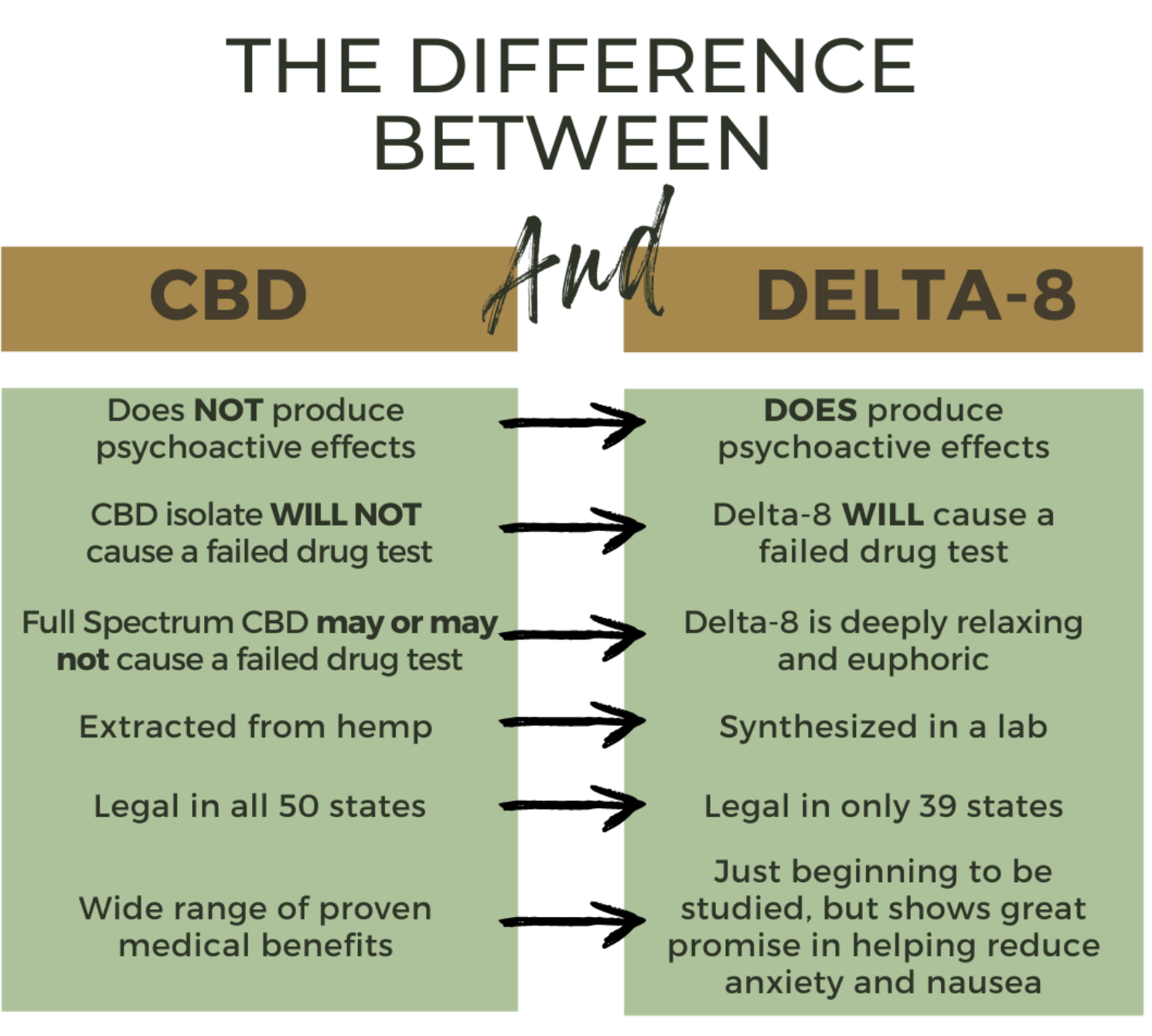Delta 8 VS CBD: What’s The Difference?
The world of cannabis and hemp-derived products is ever-evolving, with continuous discoveries and innovations. Among the multitude of compounds derived from these plants, Delta 8 THC and CBD (Cannabidiol) stand out for their unique properties and effects. This article delves into the differences, similarities, and unique attributes of these two popular compounds.
What is Delta 8 THC?
Delta 8 THC, short for delta-8-tetrahydrocannabinol, is a minor cannabinoid found in cannabis and hemp plants. It is similar to the more well-known Delta 9 THC, the primary psychoactive component in cannabis. However, Delta 8 THC is known for producing a milder high, with less anxiety and paranoia often associated with Delta 9 THC.
Psychoactive Effects
Delta 8 THC is psychoactive, but its effects are generally considered less intense. Users often report a sense of calm and clarity, which makes it a favorable option for those who find Delta 9 THC to be too potent.
What is CBD?
CBD, or Cannabidiol, is another cannabinoid found in cannabis and hemp plants. Unlike THC, CBD is non-psychoactive, meaning it does not produce a high. It has gained immense popularity for its potential health benefits, including pain relief, anxiety reduction, and anti-inflammatory properties.
Therapeutic Properties
CBD is known for its therapeutic benefits without the psychoactive effects. It’s used in various forms, including oils, edibles, creams, and capsules, to address issues such as chronic pain, anxiety, epilepsy, and sleep disorders.
Delta 8 THC vs CBD: The Differences
While both Delta 8 THC and CBD come from the same plants, they have distinct chemical structures, effects, and legal statuses.
Chemical Structure
- Delta 8 THC has a similar chemical structure to Delta 9 THC, with a few subtle differences, leading to its psychoactive properties.
- CBD has a different structure that does not bind to the brain's CB1 receptors in the same way, resulting in no psychoactive effects.
Psychoactive Effects
- Delta 8 THC: Mildly psychoactive, inducing a clearer high compared to Delta 9 THC, with reduced paranoia and anxiety.
- CBD: Non-psychoactive, providing therapeutic benefits without altering a person's state of mind.
Legal Status
- Delta 8 THC: Falls into a legal grey area in many regions. Derived from hemp, it can be considered legal under the 2018 Farm Bill in the USA, but this interpretation varies by state and is subject to ongoing legal debates.
- CBD: Widely legal when derived from hemp, especially after the 2018 Farm Bill in the USA, which legalized hemp and hemp-derived products containing less than 0.3% Delta 9 THC.
Medical and Therapeutic Use
- Delta 8 THC: Believed to have similar medical benefits to Delta 9 THC, including pain relief, appetite stimulation, and nausea reduction.
- CBD: Extensively studied for its potential therapeutic benefits, including anti-inflammatory properties, anxiety relief, pain management, and seizure control.
User Experience
Experiencing Delta 8 THC
Users of Delta 8 THC often seek a mild psychoactive experience. It’s chosen for its ability to induce relaxation, euphoria, and pain relief, while being less overwhelming than Delta 9 THC. It’s suitable for users who want some of the effects of THC without the full intensity.
Experiencing CBD
CBD is preferred for its health and wellness benefits without psychoactive effects. Users turn to CBD for anxiety relief, pain management, and other therapeutic purposes, often favoring it for daily use without impairing cognitive function.
Conclusion
Delta 8 THC and CBD, while both derived from cannabis and hemp, offer distinctly different experiences. Delta 8 THC provides a milder high and is suited for those who want the benefits of THC with reduced potency. CBD, on the other hand, is non-psychoactive and is widely used for its therapeutic properties. The choice between the two depends on the user's desired effects and needs. As the cannabis industry continues to grow, understanding the nuances of these compounds becomes essential for informed usage and maximizing their potential benefits.

